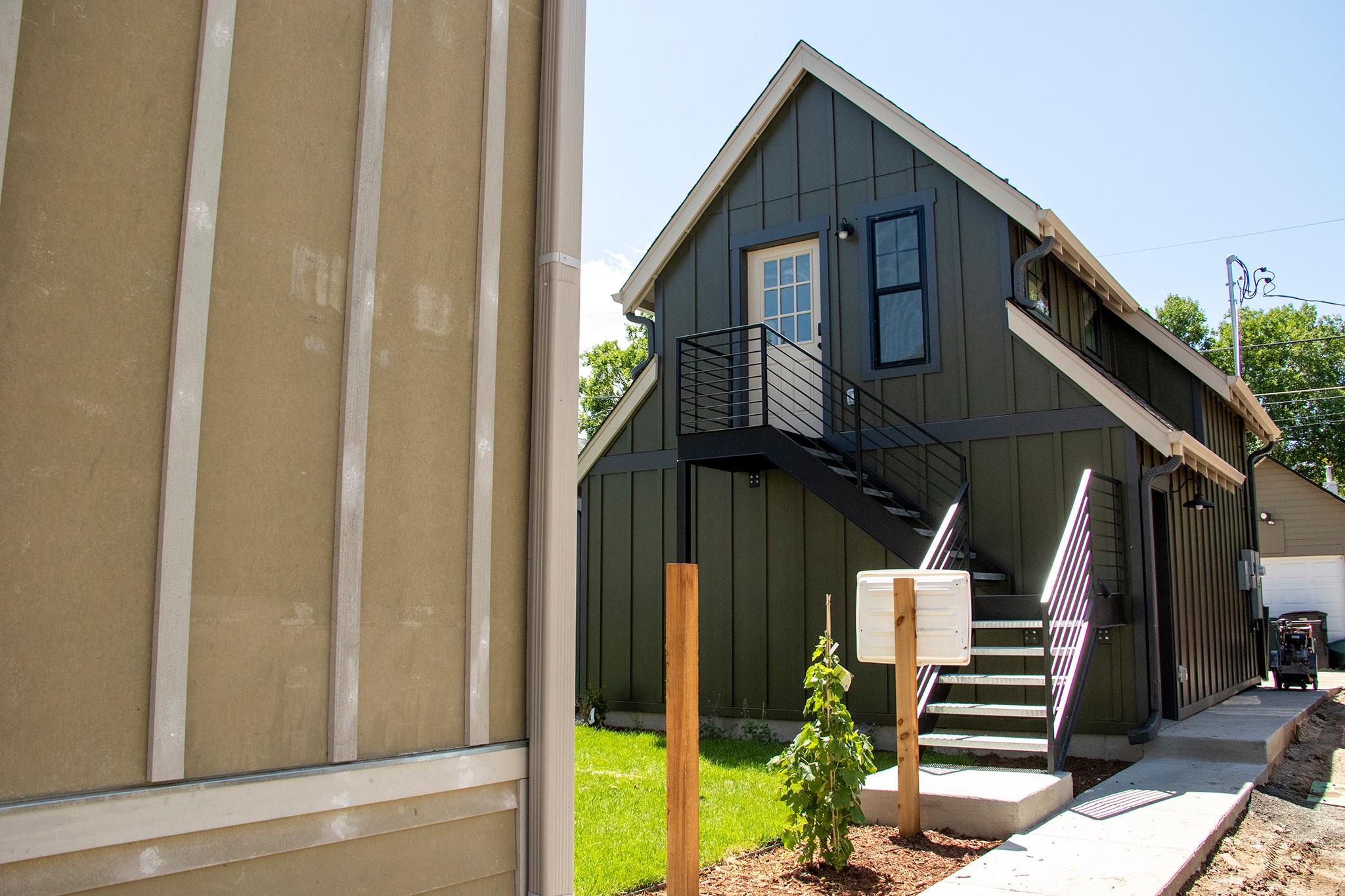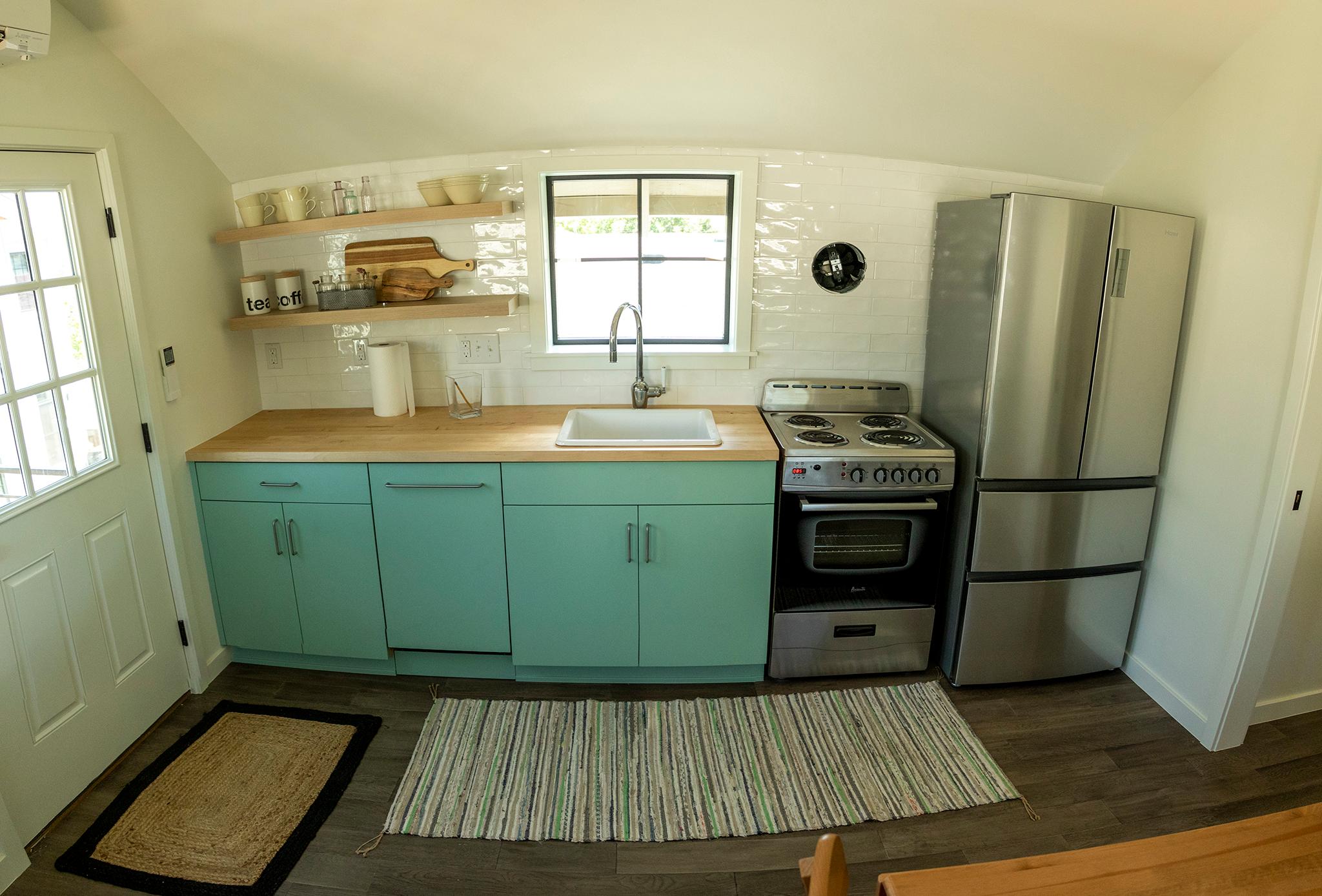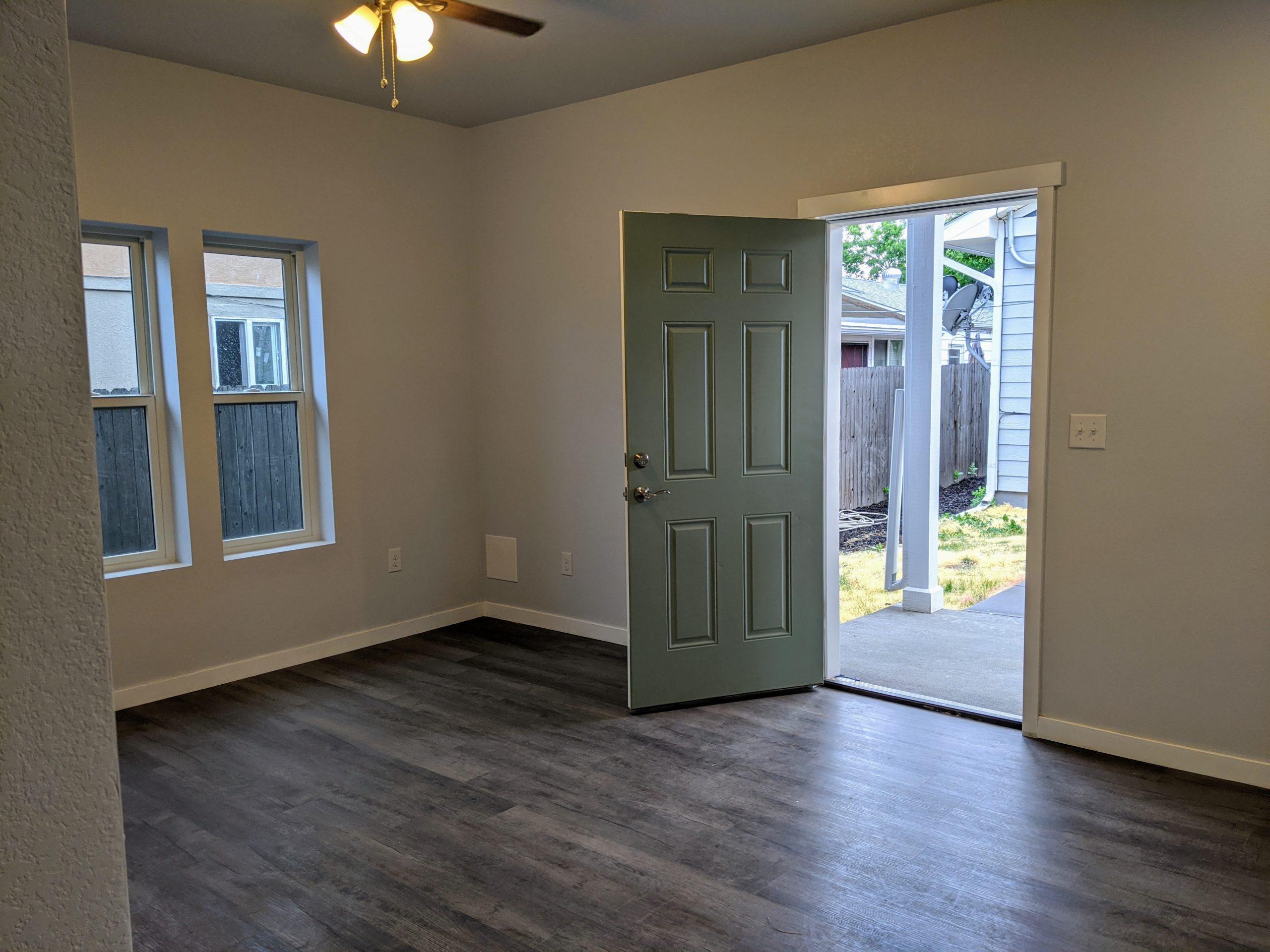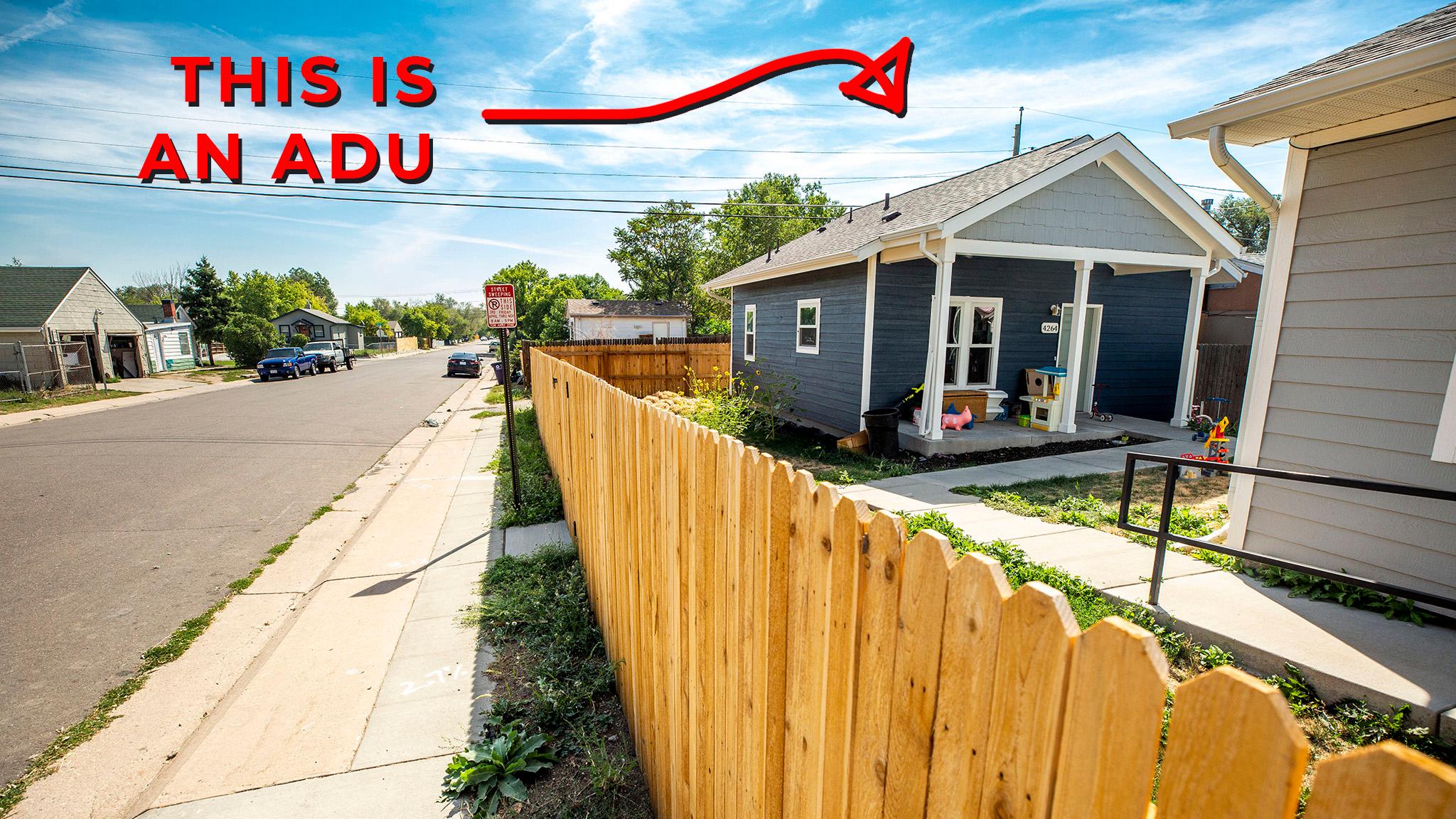Accessory dwelling units, shortened to ADUs for those in the know, are smaller backyard homes meant to combat displacement from gentrification, build wealth for property owners, and increase the city's affordable housing stock.
But ADUs are difficult and expensive to build. Part of the reason is that they're not allowed in most places, Renee Martinez-Stone, director of the West Denver Renaissance Collaborative, told an online gathering of East Colfax residents on Wednesday. City Councilmembers Amanda Sawyer and Chris Herndon hosted the meetup.
The East Colfax neighborhood -- one of the city's poorest in terms of money and richest in terms of diversity -- is on the list for a sweeping rule change. It would allow backyard homes on every property where only "single-family" houses -- the typical American home with yards and space between neighbors -- currently are allowed. That equates to over 2,000 parcels and half a square-mile.
"Some of the biggest barriers that we've seen for homeowners is actually the lack of zoning," Martinez-Stone said. "So the process that you're going through now will really open up the possibilities for a lot of homeowners because the majority of who we talk to wants to build an ADU but doesn't have zoning."

On Friday, Councilwoman Amanda Sandoval announced that she will soon submit a bill to rezone portions of a neighborhood in her district, Sloan's Lake, as well.
Martinez-Stone has been on the front lines of promoting ADUs as a housing option, particularly on the Westside, while simultaneously learning how to make them feasible in a city where building rules and housing markets have yet to catch up to the urban trend.
What are some better, less complicated names for an ADU?
Glad I asked.
Casita, backyard cottage, carriage house, guesthouse, yard house, granny flat, mother-in-law suite seem way more normal. You could also just call it a home.
Why does the city government want people to build granny flats?
Well, it's not just the city government. Locals want them too. West Denverites shape the work of the West Denver Renaissance Collaborative, Martinez-Stone said. And plenty of people have built them or at least tried.
But the idea is that casitas help locals stay local. As housing prices rise, their property taxes rise with them, pushing out longtime homeowners and changing the neighborhood's fundamental character by changing who can and cannot live there. Often, it is people of color who get displaced.
City planners and other proponents of backyard cottages see them as a tool to build wealth, too, because homeowners can rent them out. They also see them as a way of building the city's affordable housing stock without building huge... buildings.
So why aren't these things everywhere?
Aside from them not being allowed everywhere -- despite multiple city plans calling for them after years of public input -- they're not always affordable to build. Mother-in-law suites typically cost more than $200,000 to design and build, sometimes much more.

The city government, West Denver Renaissance Collaborative, Habitat for Humanity and Fannie Mae have partnered to help people who aren't rich pay for them. One solution has been prefabricated structures that are customizable but have cookie-cutter cores.
While the Denver City Council typically approves yard-houses on a one-off basis, that process is lengthy -- six months or so -- and expensive for the property owner at $1,000 just for the application process, according to the Department of Community Planning and Development.
"The Denver code, I would say, leans toward (big) development but it's a little complicated when you're an individual property owner," Martinez-Stone said.
Allowing ADUs in an entire neighborhood would mean people could build them with less red tape.
Has Denver let casitas be built in an entire neighborhood before?
Yes! Late last year, the Denver City Council signed off on guesthouses in Chaffee Park, another neighborhood feeling the squeeze of high living costs. The council would have to submit and sign off on the East Colfax version as well.
Does everyone like the idea of backyard homes?
No. Some worry that more development will increase property values and further inflame gentrification. People aren't pulling that idea out of thin air, even if it doesn't happen.
Keith Erffmeyer, Denver's assessor, told East Colfax residents that on a neighborhood level, the effect of rezoning East Colfax for casitas will be "negligible" in terms of property taxes.
"The impact on property value of this zoning change, if any, would be reflected over a long period of time," Erffmeyer said. "My personal opinion is that a subtle change such as this would not have a great impact on property values, would not have a great impact on property taxes."

On an individual level, building an ADU will increase your property's value, leading to higher property taxes.
Some are concerned that what planners call "gentle density" will reduce the amount of public street space where people can store their private vehicles (aka parking). More places to live means more neighbors, an idea that rubs some people the wrong way.
Martinez-Stone doesn't see casitas becoming ubiquitous because of site problems and all the barriers mentioned above, not to mention personal preference.
"Because of the obstacles, you're not gonna get an ADU on every site," said Martinez-Stone. "So I wouldn't worry about every one of your neighbors building on every site. It's just gonna be for a few homeowners across every other block."













